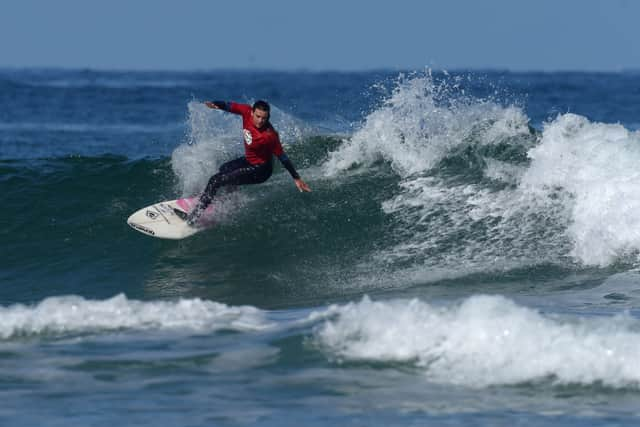British surfing champion Lucy Campbell says surfing industry ‘needs to change’ to be more eco conscious
This article contains affiliate links. We may earn a small commission on items purchased through this article, but that does not affect our editorial judgement.
and live on Freeview channel 276
Lucy Campbell, one of the UK’s best surfers, has spoken out about the role the surfing industry has played in environmental issues. Campbell criticised the sport for relying on boards and wetsuits mass-produced from petrochemicals that create tonnes of waste every year.
The seven time British champion told the BBC that the top brands in the industry “need to change”. She went on to say she would only work with brands that have a clear sustainability ethos, adding: "It’s often hard to turn down a big paycheck, if they’re a brand that isn’t sustainable, but it’s definitely more worthwhile in the long run.”
Advertisement
Hide AdAdvertisement
Hide AdCampbell also noted that there are already a number of examples on how brands can have less of a detrimental impact on the environment: "I think that they need to take the onus and make that difference. It may come at a higher price but I think eventually that price will come down as technology advances."
Surfing has a famously eco-friendly image, but most surfers use plastic boards covered in resins as well as going through millions of non-biodegradable wetsuits. It has also been estimated that more than 8,000 tonnes of neoprene wetsuits end up in landfill every year.
Though, the industry has been working on developing new sustainable boards and the world’s first fully recycled wetsuit. A UK surf company Finisterre is developing the world’s first wetsuit made entirely from recycled neoprene suits. It has collected nearly 1,000 old suits to create a recycled rubber that they are currently testing.
Tom Kay, the company’s founder, said more brands had to invest in developing new ideas: “Some of the press that’s coming out around the toxicity of neoprene is extreme to say the least, horrendous, so if you knew that why wouldn’t you change?"
Advertisement
Hide AdAdvertisement
Hide AdA long-standing study in the industry estimated that the manufacturing of a traditional polyurethane board, covered with epoxy resins and exported across the globe, could be responsible for producing the equivalent of up to 250kg of carbon dioxide.
Additionally, the study found that international travel also adds to a surfers carbon footprint majorly. Saying the average surfer’s carbon footprint is said to be 50% greater than the average person’s.


Lucy Campbell is due to compete this month in Olympic-qualifying championships in El Salvador. She told the BBC that she tries to offset the carbon cost of her travel, adding: "You do want to encourage people to get outdoors but at the same time at what cost to the planet?"
Vipe Desai, the Surf Industry Members Association executive director said: "Businesses are working together to address the environmental impacts of the products the industry produces. This effort was, and continues to be, driven by consumers demanding surf brands do more."
Comment Guidelines
National World encourages reader discussion on our stories. User feedback, insights and back-and-forth exchanges add a rich layer of context to reporting. Please review our Community Guidelines before commenting.
